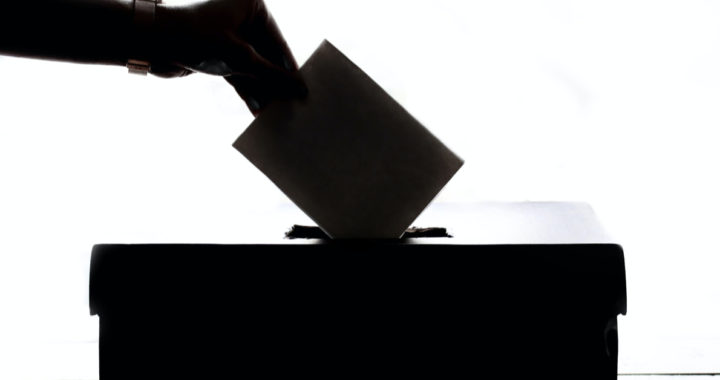A Florida law that requires convicted felons to pay legal fees associated with their criminal case before regaining the right to vote was declared unconstitutional by a federal judge on Sunday.
In his 125-page ruling, Judge Robert Hinkle said the law disenfranchises those with criminal backgrounds who are either unable to pay the legal fees or lack the ability to find out how much is owed in their case.
Hinkle said the 24th Amendment to the Constitution prohibits the creation of a poll tax that must be paid in exchange for the right to vote in a federal election. The judge wrote that the Florida law did not explicitly seek to create a poll tax, but by tying a person’s ability to vote to a judgment entered against them in a criminal case, Florida had created a “tax by any other name.”
“The obligations existed separate and apart from, and for reasons unrelated to, voting,” Hinkle wrote.
In 2018, Florida voters approved Amendment 4, a ballot initiative that automatically restored voting rights to state residents with felony convictions. Lawmakers in the Republican-controlled state legislator sought to narrow the applicability of Amendment 4 with Senate Bill 7066 by conditioning a defendant’s restoration of voting rights to the completion of any financial obligations in their criminal case.
The proposed legislation passed in Florida along party lines, with Republican lawmakers favoring the measure and Democratic lawmakers opposing it. The state’s Republican governor, Ron DeSantis, signed the measure into law last summer.
One week after the measure was signed into law, Kelvin Jones, a disabled criminal defendant, filed a lawsuit against DeSantis alleging the law discriminated against poor defendants who were unable to pay monetary fines and other legal fees.
Attorneys and civil advocacy groups working on Jones’ behalf said the law violated the Equal Protection Clause of the Constitution because it disenfranchised African Americans and other minorities who are the most likely to be unable to pay financial judgments in criminal cases.
During a recent trial on the matter, Hinkle said he found it difficult to believe that partisan politics and race didn’t play a factor in the creation and passage of SB 7066.
“Why is it all the Republicans voted ‘yes’ and all the Democrats voted ‘no’?” Hinkle said according to the New York Times. “That is not a coincidence — it would be stunning if someone told me that [lawmakers] did not realize that African-Americans tend to vote Democratic more than Republican.”
But in his ruling on Sunday, Hinkle acknowledged that the plaintiffs in the case didn’t present enough evidence that showed the measure was motivated by race.
Still, Hinkle said SB 7066 had the opposite effect of what voters apparently intended with the passage of Amendment 4 — to make it easier for those with criminal records to vote in elections, not harder.
“The voters’ primary motivation plainly was to restore the vote to deserving felons at the appropriate time — to show a measure of forgiveness and to welcome even felons back into the electorate,” Hinkle wrote. “The sentiment is hardly surprising: Forgiveness is a sentiment that appeals to most voters and has long been a mainstay of the state’s most popular religions. … Before Amendment 4, no state disenfranchised as large a portion of the electorate as Florida.”
Voters likely didn’t know how much those with criminal convictions were required to pay in fines and restitution, Hinkle wrote. It turns out, many defendants also don’t know how much is owed because Florida does not have an adequate process for defendants to get that information, the judge said.
Last October, when Hinkle issued a temporary injunction in the case, he ordered state officials to create a system allowing those with criminal judgments to learn about any outstanding balance owed and whether they were eligible to have their voting rights restored. If state officials couldn’t provide that information upon request within a three-week period, the state had to permit those with convictions to register to vote, Hinkle ruled.
The decision on Sunday makes that injunction permanent and codifies that information system going forward, though Hinkle acknowledged the legal fight over SB 7066 is likely to escalate.
It isn’t clear how long that fight could take or whether it might have an effect on the upcoming presidential election, but advocates are seeing the judge’s order as a victory for now.
“We will have our voices heard and people will have to have conversations with us if they want to get in office and stay in office,” Desmond Meade, an official with the Florida Rights Restoration Commission, told Spectrum News 13 on Sunday.
Another group called the judge’s ruling a “watershed moment in election law.”
“States can no longer deny people access to the ballot box based on unpaid court costs and fees, nor can they condition rights restoration on restitution and fines that a person cannot afford to pay,” Paul Smith, an executive with the Campaign Legal Center, told NPR News.
The majority of states restore voting rights to those with felony convictions. Some require a person complete their criminal sentence, while others restore rights the moment a person walks out of prison.
In California, residents who are serving time in federal or state prison cannot register to vote, nor can those who are incarcerated in county jail after being convicted of a felony. But residents who are in county jail after being convicted of a misdemeanor can register to vote.
California also allows those with felony convictions who are on probation, mandatory supervision or post-release community supervision to register to vote. Defendants who have served their time in federal prison and are on federal supervised release are also allowed to register to vote.
Two states — Maine and Vermont — never revoke a resident’s right to vote, even if they are incarcerated for a crime, while three states — Iowa, Kentucky and Virginia — permanently ban defendants with felony convictions from voting.

